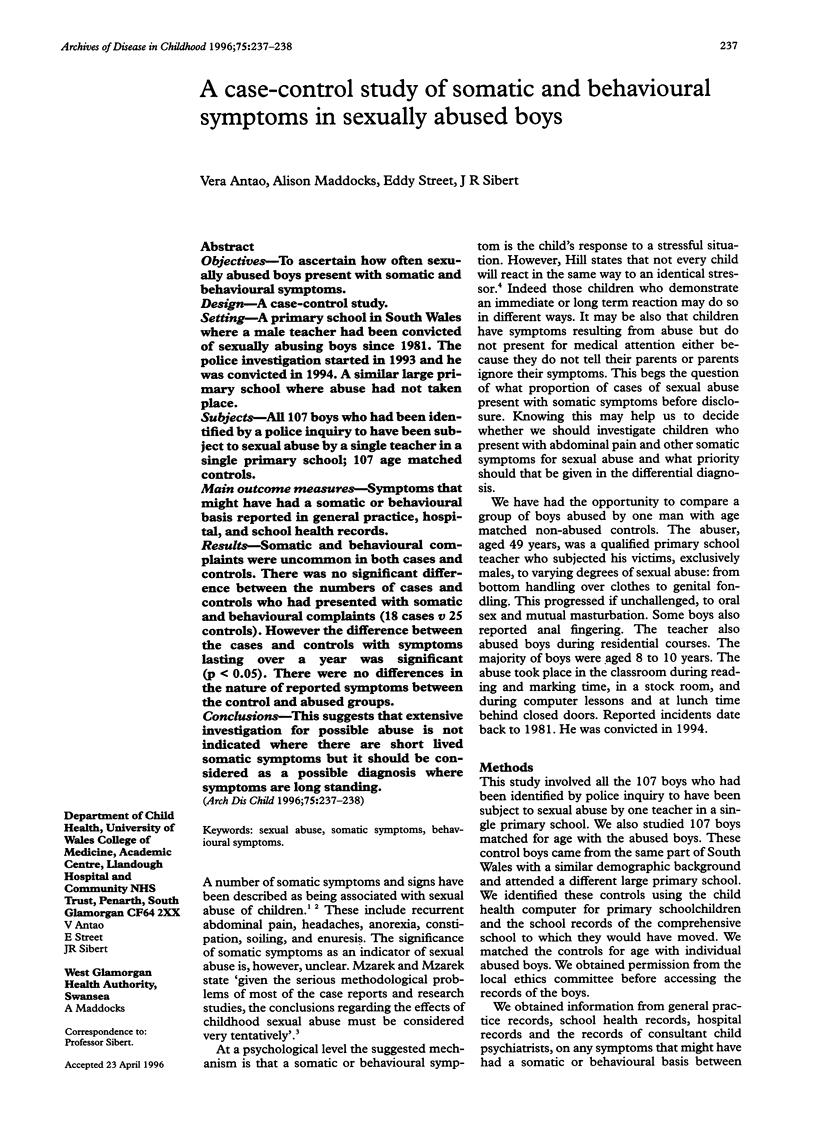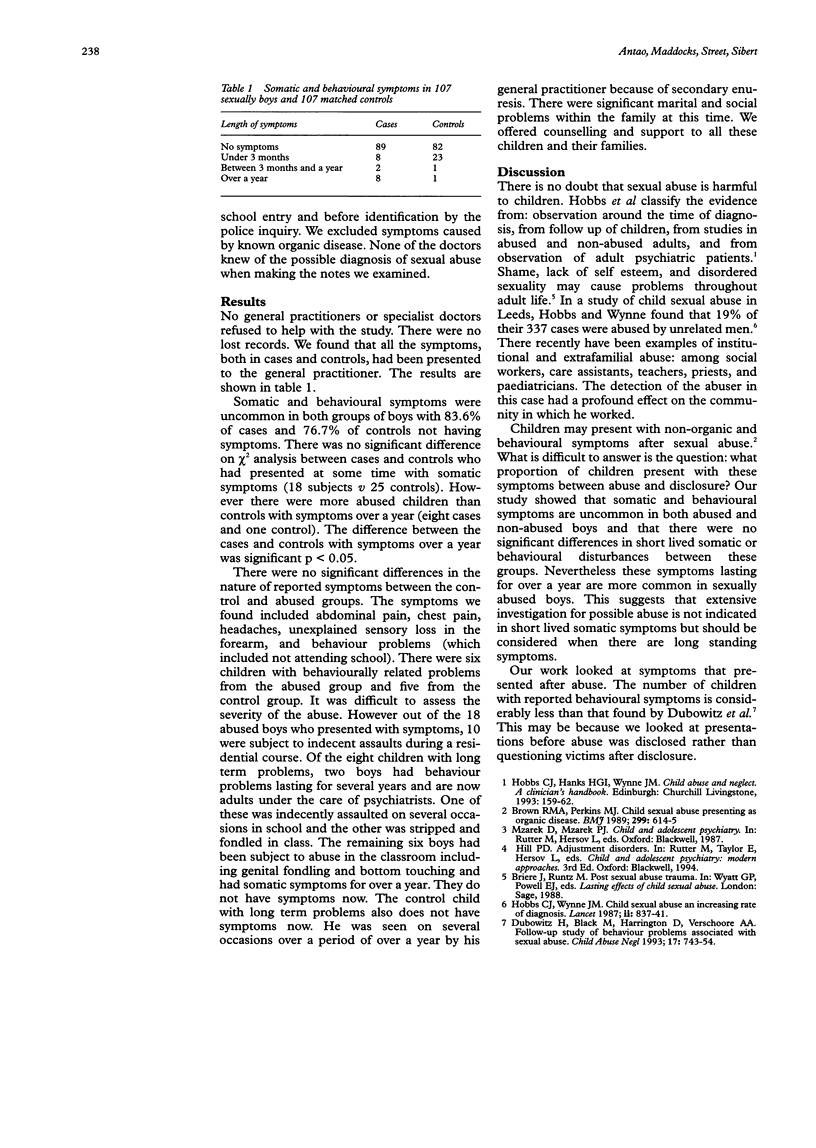Abstract
OBJECTIVES: To ascertain how often sexually abused boys present with somatic and behavioural symptoms. DESIGN: A case-control study. SETTING: A primary school in South Wales where a male teacher had been convicted of sexually abusing boys since 1981. The police investigation started in 1993 and he was convicted in 1994. A similar large primary school where abuse had not taken place. SUBJECTS: All 107 boys who had been identified by a police inquiry to have been subject to sexual abuse by a single teacher in a single primary school; 107 age matched controls. MAIN OUTCOME MEASURES: Symptoms that might have had a somatic or behavioural basis reported in general practice, hospital, and school health records. RESULTS: Somatic and behavioural complaints were uncommon in both cases and controls. There was no significant difference between the numbers of cases and controls who had presented with somatic and behavioural complaints (18 cases v 25 controls). However the difference between the cases and controls with symptoms lasting over a year was significant (p < 0.05). There were no differences in the nature of reported symptoms between the control and abused groups. CONCLUSIONS: This suggests that extensive investigation for possible abuse is not indicated where are short lived somatic symptoms but it should be considered as a possible diagnosis where symptoms are long standing.
Full text
PDF

Selected References
These references are in PubMed. This may not be the complete list of references from this article.
- Brown R. M., Perkins M. J. Child sexual abuse presenting as organic disease. BMJ. 1989 Sep 2;299(6699):614–615. doi: 10.1136/bmj.299.6699.614. [DOI] [PMC free article] [PubMed] [Google Scholar]
- Dubowitz H., Black M., Harrington D., Verschoore A. A follow-up study of behavior problems associated with child sexual abuse. Child Abuse Negl. 1993 Nov-Dec;17(6):743–754. doi: 10.1016/s0145-2134(08)80005-1. [DOI] [PubMed] [Google Scholar]
- Hobbs C. J., Wynne J. M. Child sexual abuse--an increasing rate of diagnosis. Lancet. 1987 Oct 10;2(8563):837–841. doi: 10.1016/s0140-6736(87)91025-7. [DOI] [PubMed] [Google Scholar]


